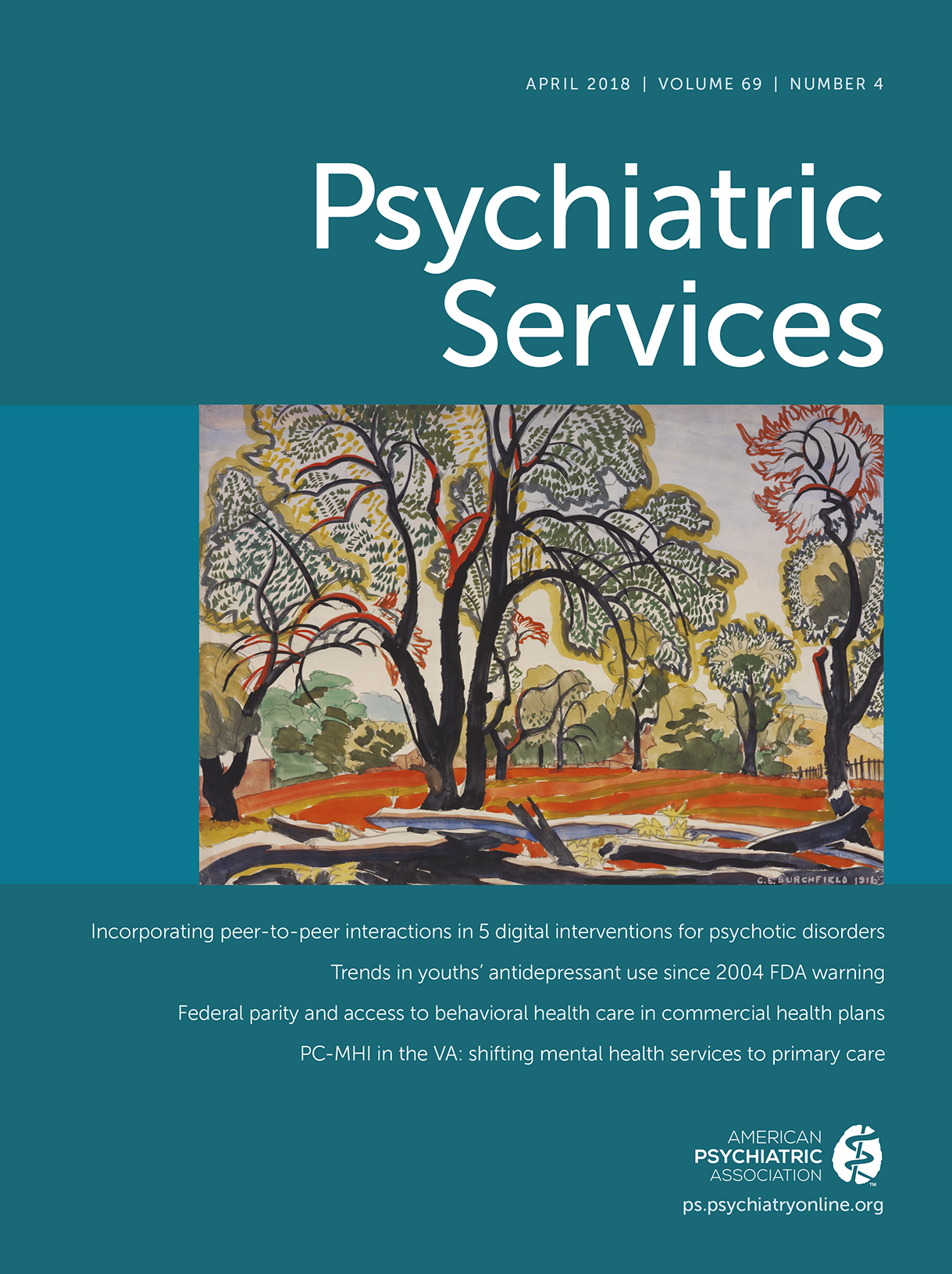Acceptability and Perceived Effectiveness of Cognitive Remediation in Clinical Practice
TO THE EDITOR: Numerous studies confirm the acceptability and effectiveness of cognitive remediation (CR) in a research context, but opportunities to evaluate CR in real-world practice occur infrequently. In 2014, the New York State Office of Mental Health (OMH), with its partner Columbia University, launched the first known statewide implementation of a CR outpatient program for adults with a serious mental illness, called Cognitive Remediation to Promote Recovery (CR2PR). This provided an opportunity to use program evaluation methods to assess the acceptability and effectiveness of CR in a large public system of care. CR2PR was designed to target cognitive impairments that interfere with recovery goal attainment. In each outpatient clinic, participants in the CR groups were ages 18–65 with serious mental illnesses. Sessions were conducted in one-hour small groups led by clinicians. Sessions devoted 45 minutes to computerized cognitive training exercises and 15 minutes of bridging group discussion. The required attendance was twice weekly for 30 sessions.
Data were collected between October 2015 and March 2017 for 132 clients in eight clinics. Program feasibility outcomes were evaluated through utilization rates—the percentage of scheduled sessions attended—dropout rates, and satisfaction with the program. After clients attended 30 sessions, we measured perceived effectiveness from client responses to a survey of subjective cognitive and functional outcomes and clinician reports on recovery progress (1). The clinician report queried about clinical setbacks, engagement in clinic and community-based activities, and changes in client assertiveness and self-confidence.
Across clinical sites, utilization averaged 72% for 18 months; 17% of clients were discharged from the group due to a lack of attendance. Satisfaction with the overall program was high: 98% of clients reported having an excellent or a good experience.
In terms of perceived effectiveness, most clients thought the CR group helped improve cognition: 59% (N=53) answered “definitely,” 39% (N=35) answered “I think so,” and 93% (N=82) indicated that the CR group helped them to deal more effectively with situations at home, school, work, or with friends. No client answered the lowest score, indicating that CR was helpful to all clients.
The recovery surveys completed by the clinical teams for each client show that 89% (N=51) of participants increased their engagement in either the clinic or community and 44% (N=25) in both domains. The reporting clinician most often noted increased engagement as increased self-confidence and participation in community-based activities.
The results show that New York State’s OMH CR2PR implementation was a feasible CR program for this specialized population in a large public mental health system. This was indicated by the moderately high rate of utilization (72%) and low dropout rate for clients with serious mental illness (17%). Clients were also extremely satisfied about the impact on cognition and on daily functioning. Clinicians noted more engagement in the clinic and/or community.
CR programs in large systems of care require an investment in training clinicians to address cognitive health, both so the clinical teams know who to refer and there are clinical staff to run the groups and do brief cognitive assessments to guide the CR treatment planning. Program evaluation data are an important way to ascertain the value of such an investment. The New York State OMH CR2PR program evaluation data indicates that CR used in real-world clinical outpatient settings is responsive to clients’ perceived cognitive and recovery needs.
1 : Translating cognitive behavioral interventions from bench to bedside: the feasibility and acceptability of cognitive remediation in research as compared to clinical settings. Schizophrenia Research (Epub ahead of print July 30, 2017)Google Scholar



